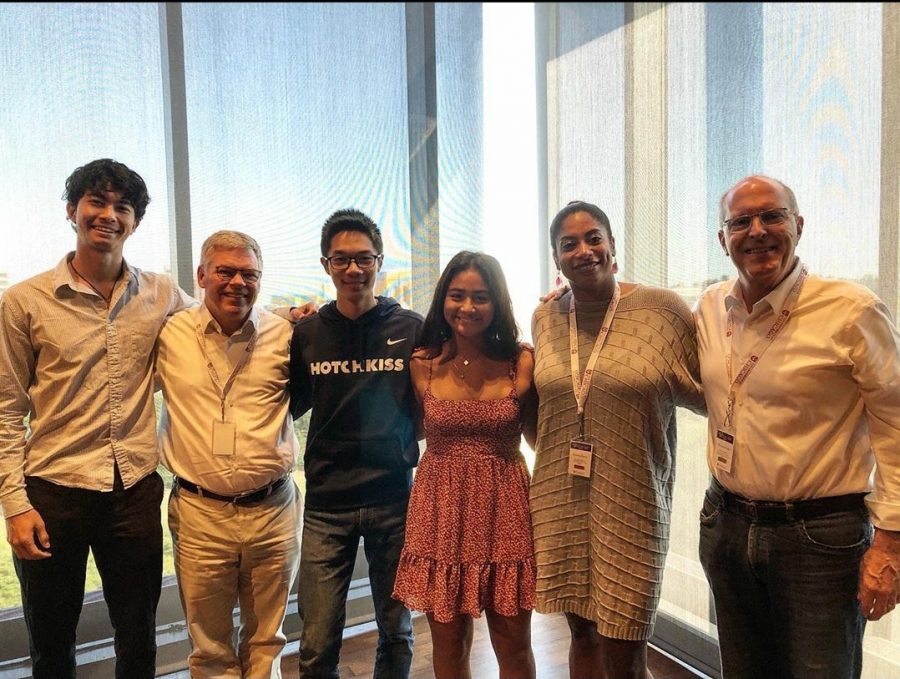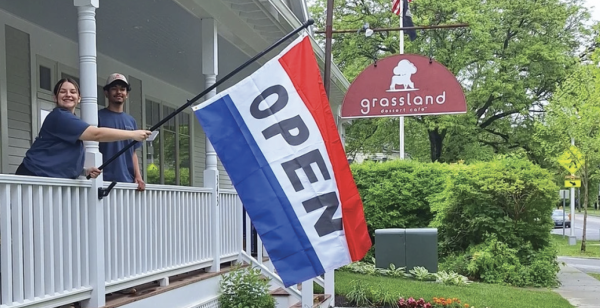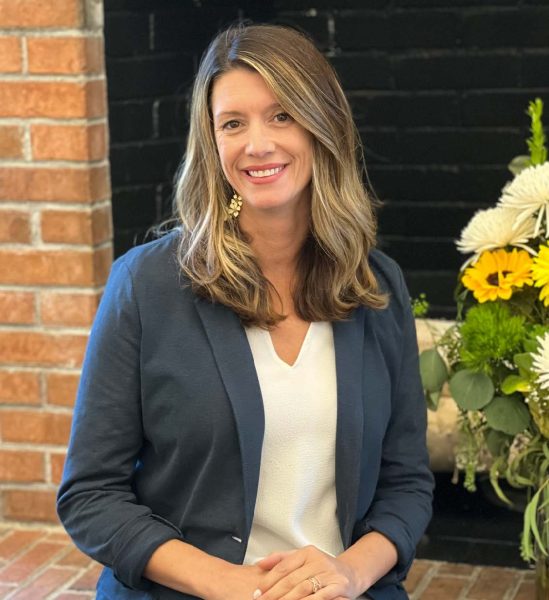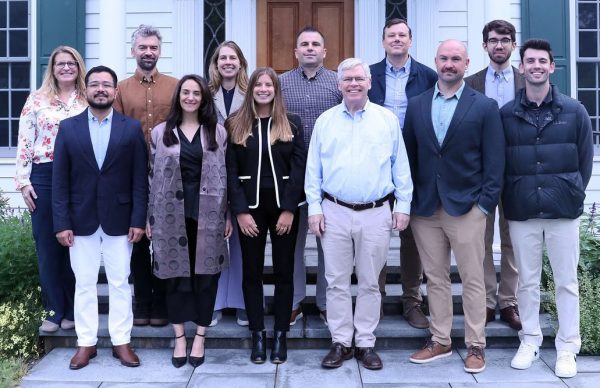The Presidential Elections: A Way to Implement the Chicago Principles
From left-to-right: Max Grossman ’21, Mr. Bradley, Felix Bao ’21, Ivy Bhandari ’21, Dr. Myers, and Mr. Drake, attended the Freedom of Expression and Open Discourse in High School Conference at the University of Chicago.
In our school’s diverse community, political disagreement is inevitable, and so is the potential domination of some voices over others. The Council on Diversity and Inclusion, along with other students and faculty members, plan to implement the Chicago Principles to support open discourse before the upcoming U.S. presidential elections.
The principles are in The Freedom of Speech Policy Report, a free speech statement written by the Committee on Freedom of Expression at the University of Chicago, advocating free, robust, and uninhibited debate among community members. Administrations at 55 college-level institutions across the U.S. have endorsed the principles. To begin to incorporate the Chicago Principles in the community, the council and others have planned a course of meetings, group-discussions, and gatherings to guide the school’s response to the presidential elections.
The Council of Diversity and Inclusion was originally established to help improve diversity, equity, and inclusion. Implementing the Chicago Principles is one way the council is trying to support diverse community members. According to Emily Heimer ’21, co-head of the council, the principles seek to “advocate for students and help the administration to see a perspective that they haven’t considered before.”
From September 12-14, 2019, student representatives Ivy Bhandari ’21, Max Grossman ’21, and Felix Bao ’21, along with Mr. Thomas Drake, director of the Center for Global Understanding and Independent Thinking, attended the Freedom of Expression and Open Discourse in High School Conference at the University of Chicago. The conference educated them about the principles and how to implement them at the school.
Still, some institutions and schools face difficulties in implementing the Chicago Principles. Critics argue that the principles allow offensive speech that communities should be able to forbid. However, supporters argue that the principles can be used effectively to promote beneficial discussion and liberated verbal expression. Felix Bao ’21, one of the attendees of the conference, said, “In order for the Chicago Principles to bring its benefits to the Hotchkiss community, we need to learn to put ‘sides’ aside and to embrace ‘finding truth’ as the new motivation for a discussion.”
Dr. Rachel Myers, director of diversity and inclusion, noted that there have been stumbling blocks in adopting the Principles at the school. After the 2016 election, the school initiated some political discussions, but Dr. Myers noted that some individuals were not prepared to share and listen to the opinions of others in a productive and respectful way. Supporters argue that adopting the Chicago Principles would help guide students in growing comfortable with discomfort while maintaining the respect instilled in the school’s values.
Although COVID-19 has drastically impacted the school community, the plans for implementing the principles have been minimally affected. The school is looking to hold an All-School meeting in the fall with two speakers with contrasting opinions—potentially students or alumni—then lead students into smaller discussion groups. The council and Mr. Drake hope to invite alumni, especially students or graduates of the University of Chicago, to speak about their experiences with the Chicago Principles in their own school setting. The council wants to ensure that the day after the elections is a Grace Day. The school will also offer streaming services of live footage on the day of the election for community-wide access. Following the elections, the council hopes the Hotchkiss Political Union (HPU) can lead an all-school forum to help unpack the results systemically and on the emotional level.
Mr. Drake said, “Nothing is set in stone, as the current situation is constantly changing. We are working hard to plan on multiple levels, ensuring that these discussions will happen regardless if we return to school or not.”
Learn more about the Chicago Principles.





